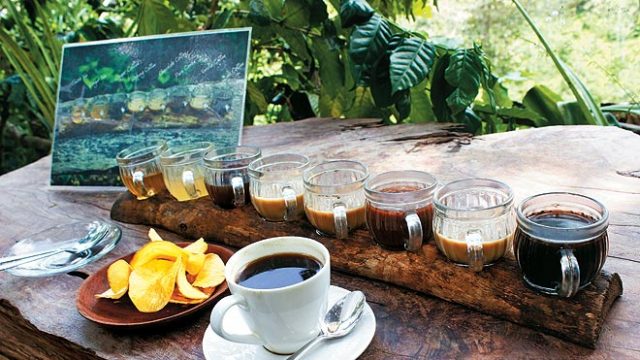An afternoon of wanderings in Ubud, in central Bali, which took in the famed rice terraces of Tegalalang, had left me somewhat drained and in need of rehydration. Enquiries with my guide yielded the life-restoring information that a “coffee bar” of some repute was in the neighbourhood. And yet, Bali Pulina Agro Tourism, where we landed up, turned out to be a most unusual watering hole. It’s actually a plantation that showcases its coffee and herbal tea products, including Indonesia’s signature coffee beverage: the kopi luwak, billed as the world’s costliest coffee.
Now, kopi luwak isn’t for everyone. The coffee was traditionally prepared from berries picked from the faeces of the Indonesian palm civet, a rodent that is reputed to eat only the choicest coffee beans in the wild. Evidently, the enzymes in the civet’s digestive tract infuse the coffee beans with their distinctive aroma. Today, though, tradition has given way to intensive farming methods in which, according to animal rights activists, caged civets are force-fed coffee beans. (Bali Pulina, however, disavows such methods.)
Seated in verdant surroundings that overlooked the rice terraces, I sampled — for free — eight different coffees and teas: lemon tea, ginger tea, ginger coffee, ginseng coffee, chocolate coffee, pure cocoa, vanilla coffee and Balinese coffee. The ninth, a cupful of aromatic kopi luwak, came at a subsidised price of 50,000 Indonesian rupiah (about Rs 250).
Paying top dollar for a beverage processed with berries ‘digested’ by a civet cat may seem like a distasteful extravagance. But it’s a quirky only-in-Indonesia experience — for those who can stomach it.
Contact: Bali Pulina Agro Tourism. +62-878-6224-0233




